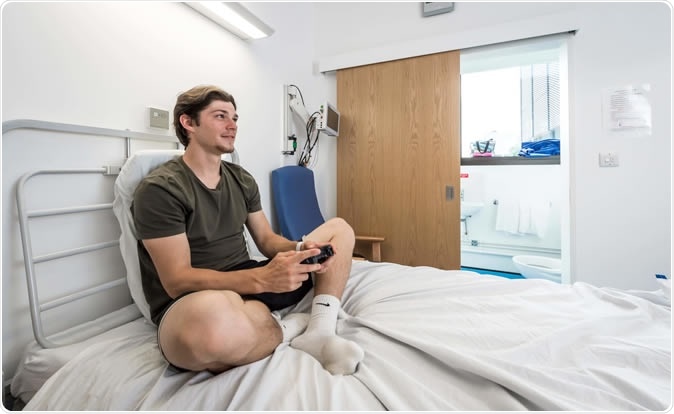Amid the coronavirus disease (COVID-19) pandemic, scientists are asking for healthy volunteers to help in the development of the vaccine. Volunteers will be infected with the two strains of the common coronavirus.
As the severe acute respiratory syndrome coronavirus type 2 (SARS-CoV-2) is propagating rapidly across the globe, scientists race to find a potential vaccine to halt the spread. The virus has so far infected more than 126,000, with an average of a thousand infections per day. The death toll has reached more than 4,600.
The hardest-hit countries are China, Italy, Iran, and South Korea, while several other countries have reported increasing local transmission of the virus.
A laboratory in East London is recruiting up to 24 people and will be paid $7,000 each for the clinical trial. They will be infected with a less harmful form of COVID-19 as part of a global experiment.
The participants will be regularly monitored by doctors, who will be equipped with personal protective equipment, and they will be placed in isolation for 14 days.
The novel coronavirus is a new coronavirus that has not been previously identified. The virus causing coronavirus disease 2019 (COVID-19), is not the same as the coronaviruses that commonly circulate among humans and cause mild illness, like the common cold.
The job
For the volunteers, the task is offered by the hVIVO, a quarantine laboratory at Queen Mary Bio Enterprises Innovation Center in London, in a program called FluCamp. It is one of the companies hoping to find and develop a vaccine to fight against the coronavirus.

Image Credit: FluCamp
The scientists will expose the volunteer to two common strains of the human coronaviruses – 0C43 and 229E, which cause mild respiratory disease. The volunteers might experience flu-like symptoms, such as a cough or cold.
A diagnosis with coronavirus 229E, NL63, OC43, or HKU1 is not the same as a COVID-19 diagnosis.
If the vaccine developed by the company will work on the weaker 0C43 and 229E viruses, it may work on the novel coronavirus, which causes COVID-19, now officially declared a global pandemic. However, the volunteers need to pass a health screening, including tests on their heart, urine, and blood.
They will undergo a medical interview to ensure that they do not have underlying health conditions. Further, the tests and interviews will make sure the patient does not have the antibodies against coronavirus.
The clinical trial called a controlled human infection model would be conducted in hVIVO’s clinic, which has a 24-bedroom facility at the Queen Mary Innovation Center in Whitechapel, London. The study aims to produce data that aids in providing a compelling selection of the products that should be fast-tracked for field testing.
“FluCamp is all about improving the health of the population, through increasing understanding around common viral illnesses – like the common cold and flu,” FluCamp said on its website.
“Ultimately, the more that we understand about how viruses affect the human immune system, the more quickly we can find and test better ways to treat them. The end goal of clinical trials like those we conduct at FluCamp is to potentially eradicate these common illnesses completely – or at least make treatment of them as easy and effective as possible,” it added.
What is COVID-19?
COVID-19 is an illness caused by the coronavirus, which has been tied to other epidemics, such as the severe acute respiratory syndrome (SARS) outbreak in 2003, and the Middle East respiratory syndrome coronavirus (MERS-CoV) outbreak in 2012.
COVID-19 is a respiratory disease that causes difficulty in breathing, fever, and cough. In most cases, the symptoms can be mild to moderate, but in people who are more than 60 years old and those with underlying medical conditions, the disease can be dangerous.
It affects the lungs and causes inflammation, which will later progress to pneumonia. Pneumonia is often the cause of death of infected patients with COVID-19 since it can lead to acute respiratory distress.
Human coronaviruses can sometimes cause lower-respiratory tract illnesses, such as bronchitis. This is more common in people with cardiopulmonary disease, people with weakened immune systems, infants, and older adults.
The best way to prevent infection is to practice good hygiene, wash the hands regularly with soap and water, disinfect common areas, avoid going to crowded places, and practice social distancing.
Source: